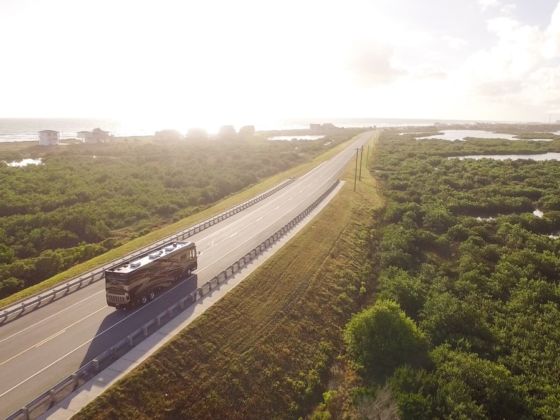Here’s a truth to start us off: RV travel is for everyone. It’s for the solo traveler who embraces the freedom of the open road. It’s for the couple road tripping across the US in a cozy trailer. It’s for the adventure seekers who want to be immersed in nature but don’t want to give up the comforts of home. After all, not much beats campfire ambiance, sleeping in your own bed, and million-dollar-doorstep views. Yep, all at once.
From converted vans to luxurious fifth wheels, from shoestring budgets to champagne-and-caviar lifestyles, there’s an RV (and a camping spot) for everyone. And though there are different types of RVs — and different types of RVers — travel truths are absolute. Here are 11 that this crowd experience firsthand.
Truth #1: There’s a website/app for that.
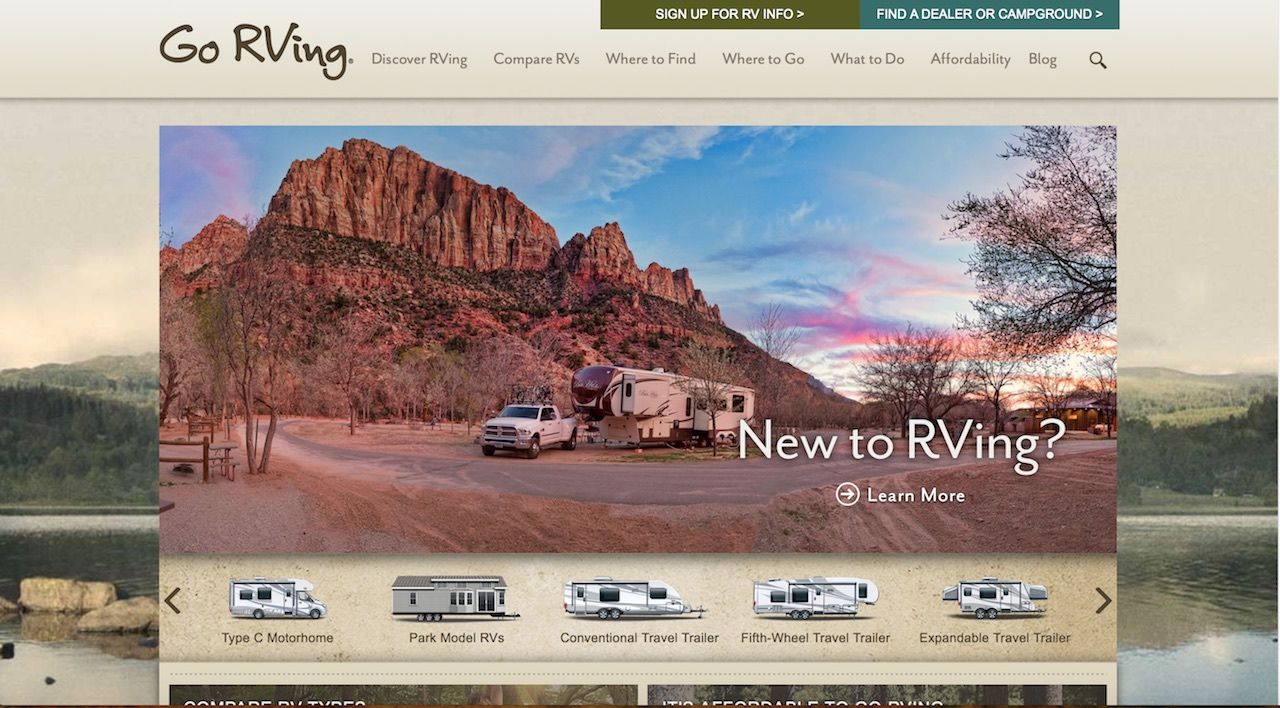
Photo: Go RVing
Want a campground with wifi, a swimming pool, and a flexible pet policy? Great, because those exist. Websites like GoRVing are encyclopedias of useful information, guiding you toward spots you definitely wouldn’t have known about otherwise.
Pinpoint the closest, cheapest gas station to fill up your tank with Gasbuddy. Find the most scenic route with Roadtrippers. Locate nearby RV dump stations with Sanidumps. There’s an app for nearly everything, so not a single step of the travel process has to be difficult or intimidating.
Truth #2: Adventure awaits beyond the confines of the ordinary.
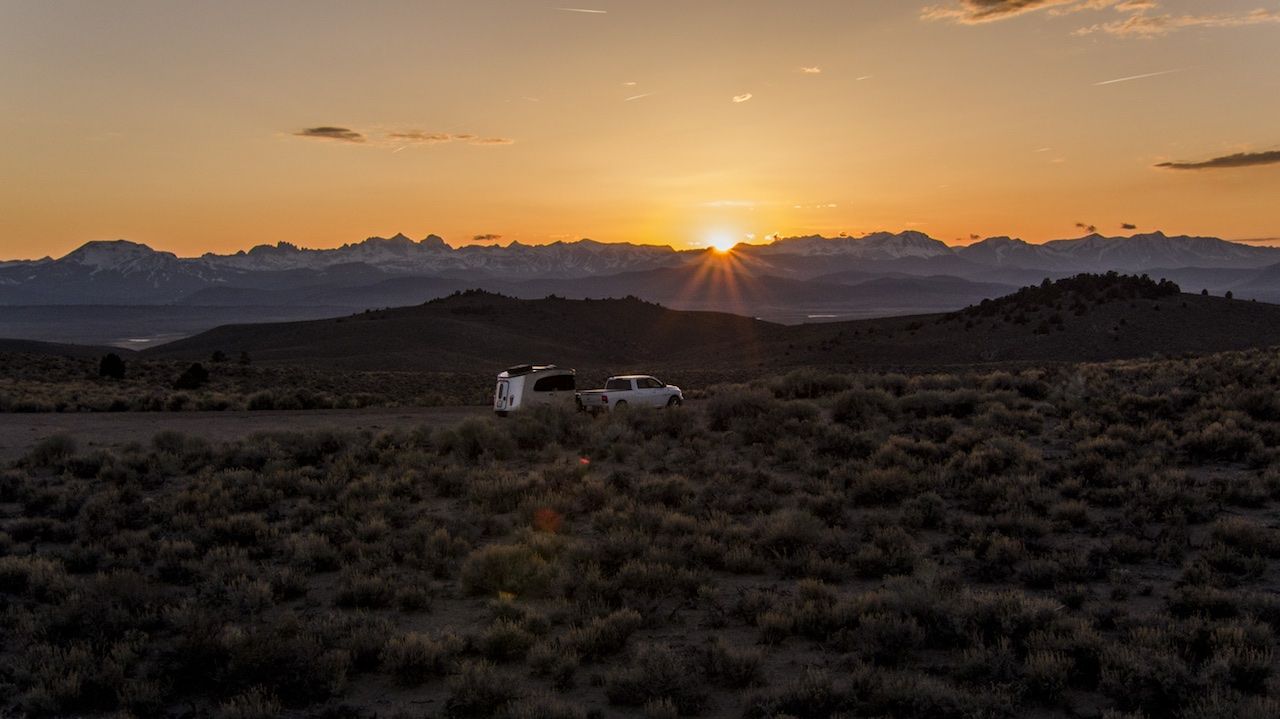
Photo: Go RVing
There’s more to RV travel than campgrounds and RV resorts. In a pinch, you might even find yourself camping out in a parking lot at a casino or big-box store. Many such spots offer a safe bet for a free night’s sleep before you hit the road again the next morning. Pro tip: Always check with the specific property before staying the night.
If you want to escape the lights and the crowds, head to public lands. You can camp in America’s national forests — there’s 154 of them across the country, which adds up to 193 million acres — and in many areas run by the Bureau of Land Management. You won’t have an electric or water hookup, but the views are free and unlimited.
Adventurous travelers can also stay overnight at wineries, orchards, ranches, and private properties all over the country with Harvest Hosts or Hipcamp. Save some cargo space for all the wine and fresh produce you’ll want to buy!
Truth #3: Eating local is always rewarding (and usually also delicious).

Photo: Go RVing
Foodie RVers can beeline to the nearest farmers markets and stock up their kitchen with whatever’s fresh and in season: Michigan cherries, Alaskan blueberries, Maine lobster, Florida oranges, Vermont maple syrup. No matter where your travels take you, farmers markets are the place to find the best collections of local produce, meat, and baked goods. And it turns out your own mobile kitchen is a great place to store and prepare all your winnings.
Truth #4: Hidden costs are avoidable.
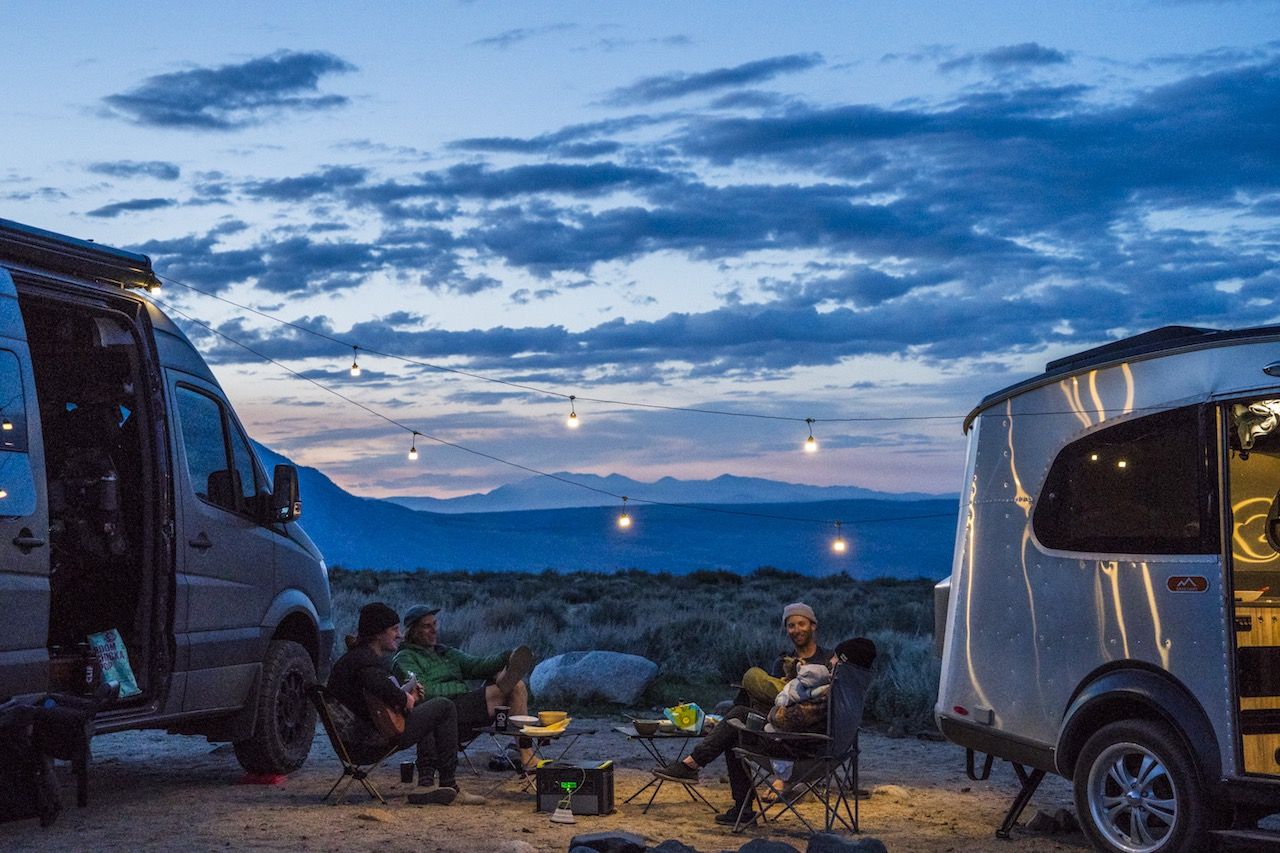
Photo: Go RVing
You know all those extra charges that break your budget: ocean-view rooms, pet fees, baggage fees, parking — the list goes on. They’re a thing of the past with RV travel. Sure, you might wind up buying some extra firewood, but there’s nothing “hidden” about an impromptu campfire party.
Speaking of which, you don’t get dinged for being flexible — no charges for changing a flight or extra nights in a hotel because you decided to extend your trip by a few days. RV travel is infinitely more versatile, which leads to a lot less worry (and a lot less cost).
Truth #5: Travel expands your vocabulary.
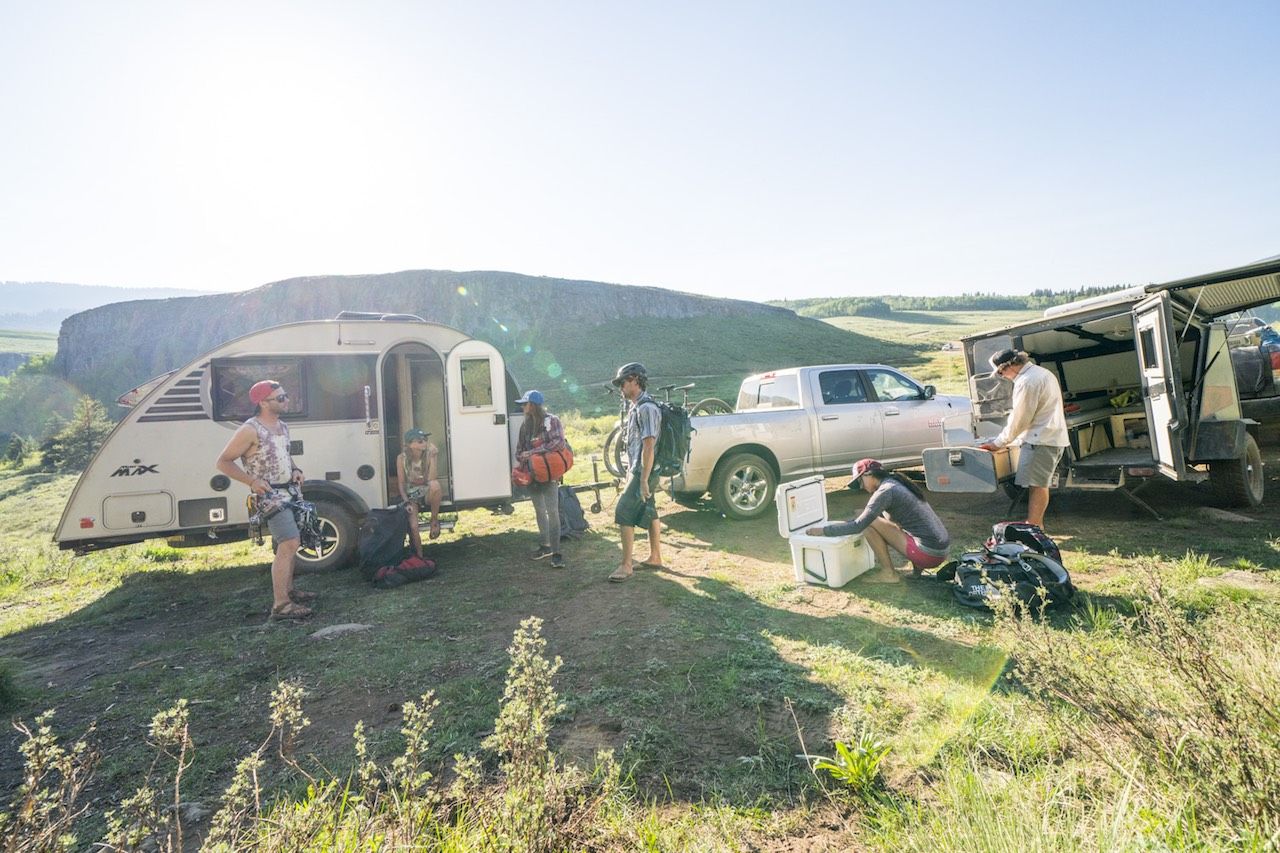
Photo: Go RVing
The RV tribe has its own language. Savvy RVers know how to hook up quickly — and we’re not talking about the dating world — and are comfortable talking about their reefer in public. A seasoned RV traveler can also list the ins and outs of boondocking, yamping, and workcamping. That’s camping without hookups in the boonies, yard camping in a friend or relative’s yard, and working in exchange for a campsite and some compensation, respectively.
And reefer? That’s slang for refrigerator. Basically, RVing comes with a whole new in-group. Welcome to the gang.
Truth #6: Four-legged copilots make any trip better.
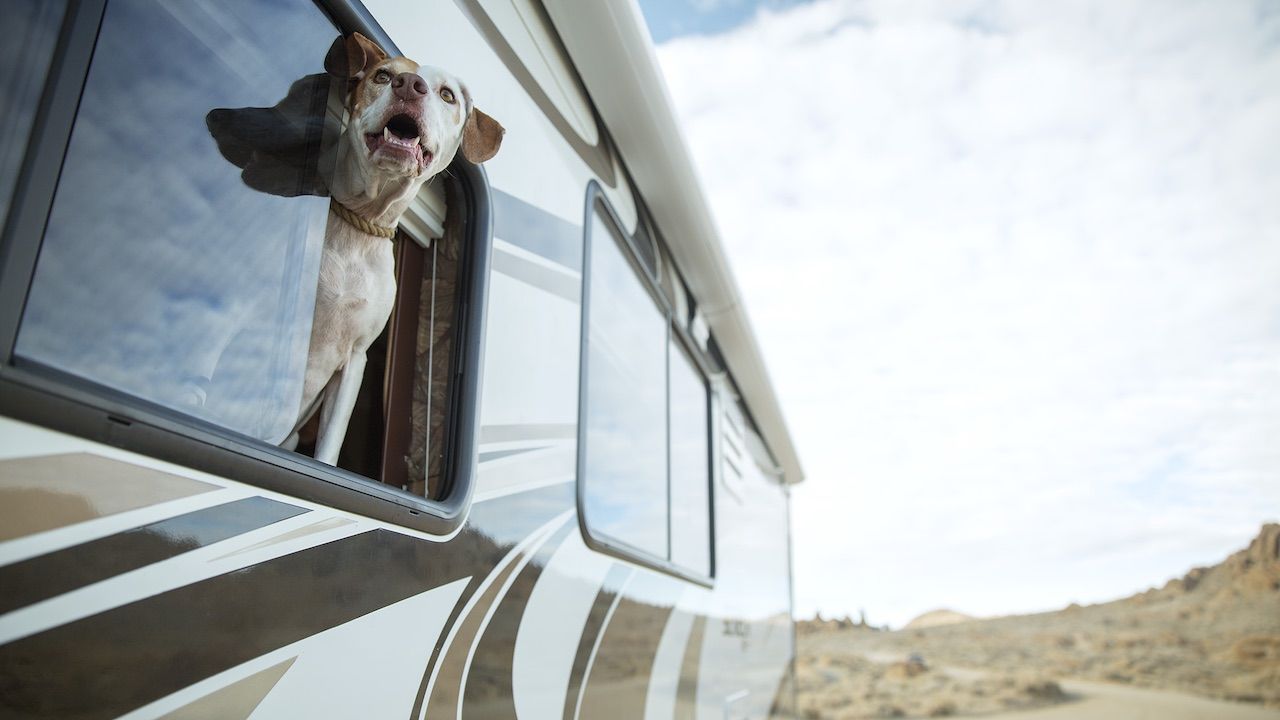
Photo: Go RVing
With some advance prep, you can easily take your four-legged companion with you — dog, cat, hamster, or otherwise. And while they can’t help you read a map or park the rig, they’re great company on the road, on trails, and at dinner. Most campgrounds allow pets, but you’ll want to verify ahead of time.
And they might snore, but they won’t change the radio station or complain about your singing.
Truth #7: You never have to truly unplug (unless you want to).
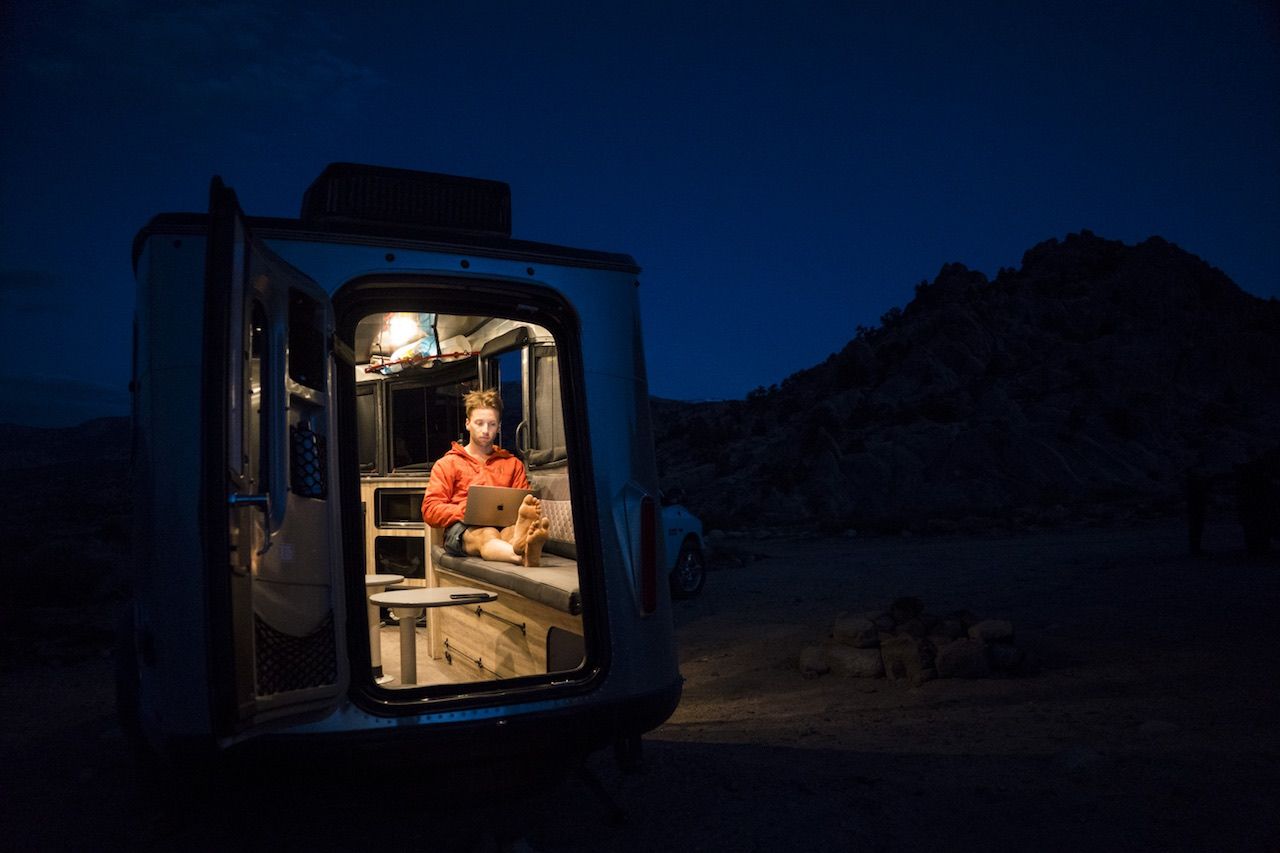
Photo: Go RVing
Let’s face it: Unplugging completely isn’t for everyone. From strengthening a campground’s wifi signal with a booster or extender antenna to investing in RV satellite internet service, there are connection options for all but the most remote areas in the US. Whether you need to stay in contact with family members, update your Instagram stories, or work remotely, there’s a way to make it happen. Worst-case scenario? Find a nearby RVer with a setup and make friends.
By the same token, dry camping — camping without water or electric hookups — often means conserving water, going without air conditioning, and giving up a lot of luxuries we take for granted (assuming you didn’t opt for a generator). But you don’t have to skip the showers, live in darkness, or subsist on dehydrated food like it’s the end of days. Solar power is a game-changer for dry camping — there are solar showers, solar lights, solar panels, and even solar ovens. …You know this is 2018, right?
Truth #8: Budget-friendly travel equals more travel.
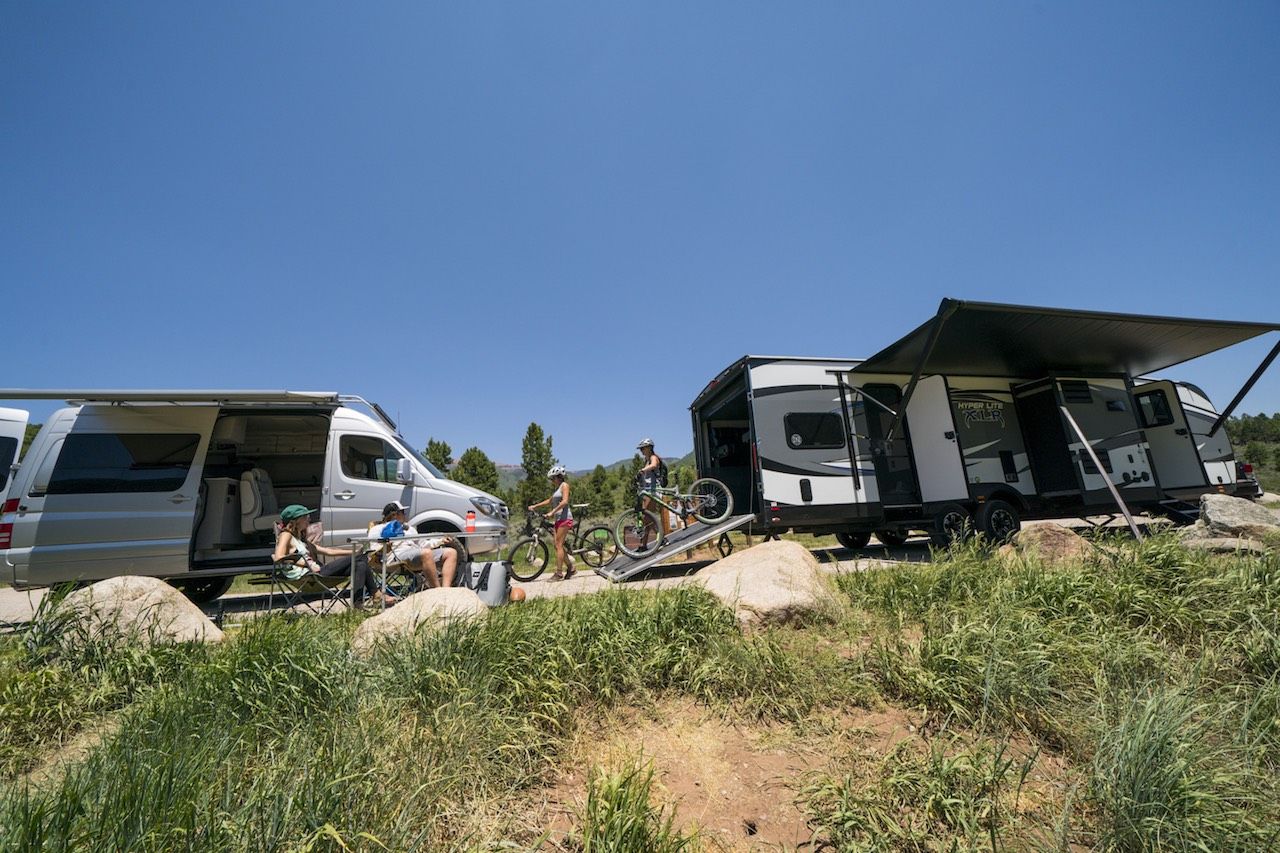
Photo: Go RVing
Imagine travel without the cost of hotel rooms, airfare, car rentals, and (if you choose) restaurants. Sure, it depends on how many miles you travel and whether you spend your entire vacation at high-end RV resorts or free dispersed camping spots, but RV travel can cost much, much less, which means you can — and likely will — travel more often. And with the ability to take Fluffy or Spot with you, to work remotely, and to go wherever the good weather does…this could legitimately be your new year-round thing.
Another fee you won’t have to worry about? Equipment rentals. Whether you want to explore trails by mountain bike or get out on the water in a kayak or SUP, when you travel by RV, you can bring your gear with you instead of renting it — over and over again — at your destination. Seriously, how many kayaks could you have bought by now?!
Truth #9: Travel knows no off-season.
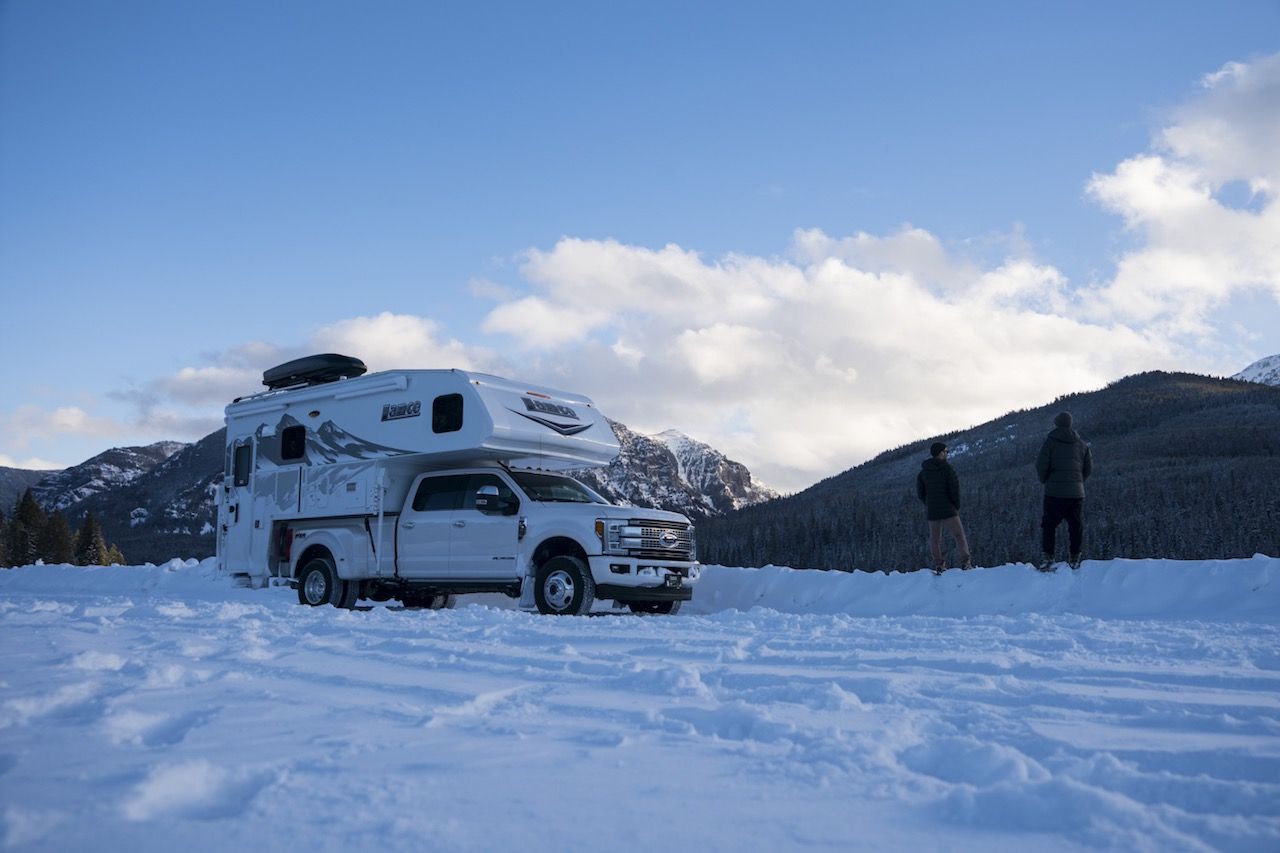
Photo: Go RVing
Love the winter months and everything they offer? You can point your RV toward the mountains and hit the slopes or ski trails. Cold-weather camping does require some preparation (think winterizing and extra insulation), but there’s less competition for camping spots, so it’s usually easier to nab one with the best views — and just think about the fresh powder waiting for your skis or snowshoes.
Hate the winter months and everything they offer? Drive a few hours south, and you’re golden all over again.
Truth #10: Traveling well is a skill, and skills require practice.
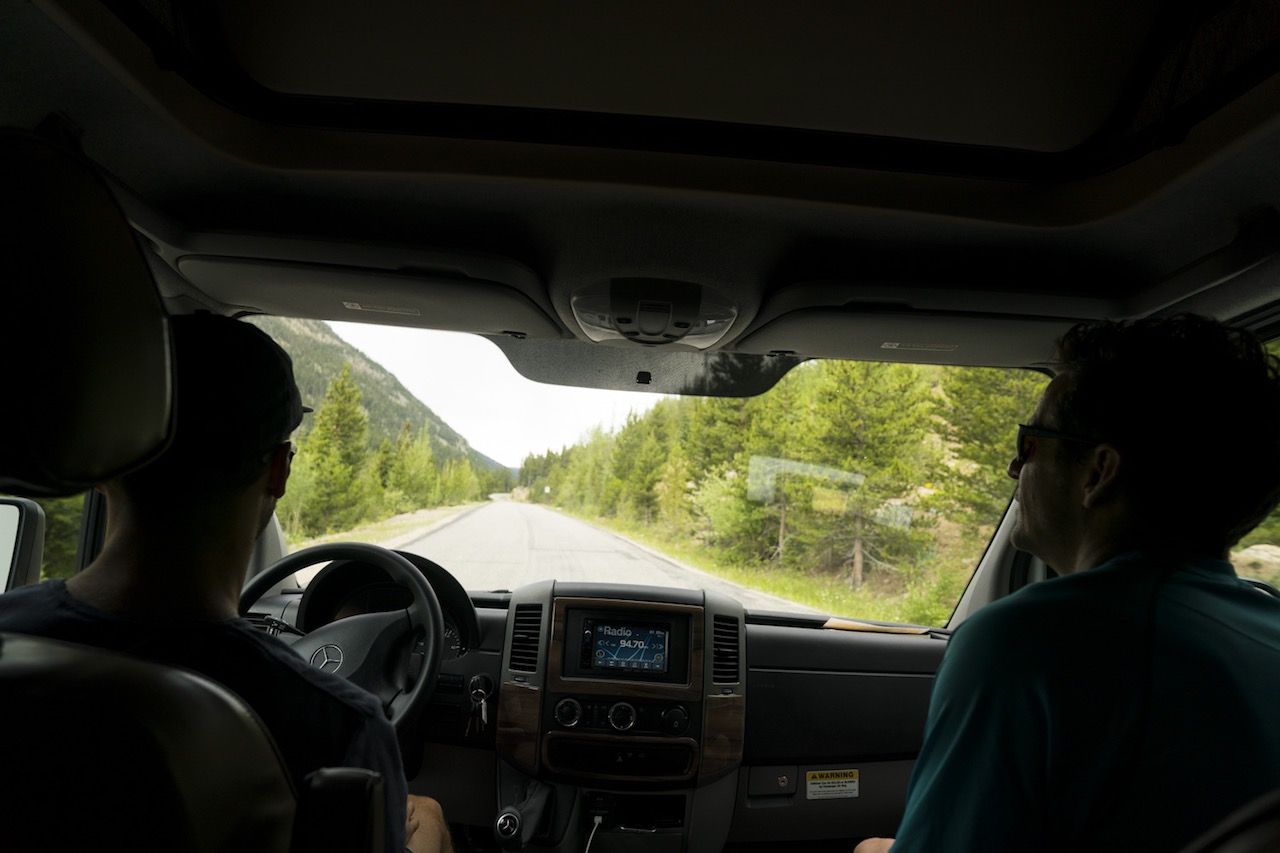
Photo: Go RVing
Remember when you thought parallel parking would be impossible to learn? It’s the same with backing up and handling your RV: Practice makes perfect. And while many RV parks help you out by offering pull-through spots, it’s good to get comfortable maneuvering your vehicle in reverse. Just remember that side mirrors, spotters, and RV backup cameras are your friends.
Truth #11: It’s about the journey, not the destination.
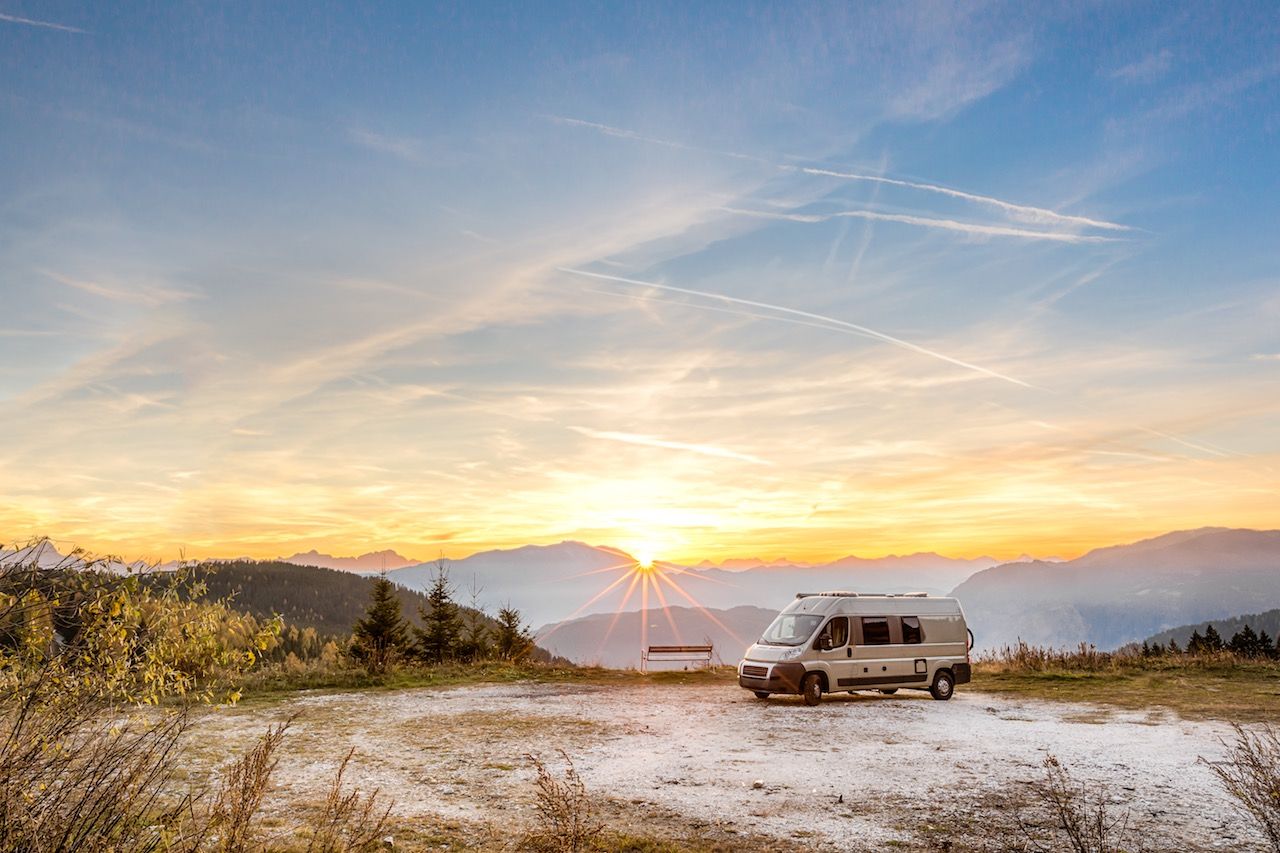
Photo: Go RVing
RV travel is perhaps the purest manifestation of this old cliche. No more cabin fever from being squeezed into a sedan for hours on end. No more wishing you could’ve fit an extra outfit or piece of gear in the trunk. No more “fast food or nothing” scenarios for lunch (unless you’re into that — we won’t judge). In an RV, the journey is a joy, which makes the journey the real reason you’re out there.
